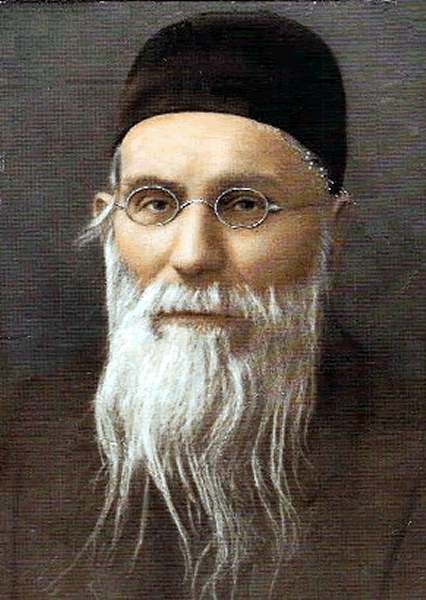
I wanted to share a great ma'aseh and teaching from my rebbe...
Two bachurim went to learn by the Alter from Slabodka. One learned very much and learned on a very high level. His friend also came to learn in Slabodka, but he learned less, and on a lower level than his friend.
Over time, the "good learner" noticed that his friend was getting more attention from the Alter of Slabodka than he was. This started to bother him, so finally one day he asked the Alter why his friend, who didn't learn as well or as much, got much more time with the Alter than he, himself, did.
The Alter answered him with a kasha on a halacha. He asked, "Why is it that Alos Hashachar," "first light," is considered to be halachically "day time," even though it is virtually completely dark outside, while Bein Hashemashos, when it is almost totally light outside, is considered "night time"?
He answered himself by saying that the status of a time of day is determined by which direction it is heading. Alos Hashachar is headed towards day, even if it totally dark outside, and therefore has the halachic status of "day." Whereas Bein Hashemashos is heading on the way to being night, and therefore, has the din of "night."
Similarly, a person who is on a growth track is considered greater than one who might be objectively greater, but is headed in the opposite direction. Since you're only here so that you can say that you're learning at Slabodka, and since your friend is here to grow in learning, even though he is learning less and at a lower level, my relationship to the two of you reflects that reality. (Slabodka was, as I understand it, a mussar yeshiva, and people came there with the understanding and expectation that they would receive personal mussar so that they could recognize their own faults and grow.)
This story makes me think of a couple of things. One is that I am impressed at how people in those days were made of stronger stuff than we are today. People today need to be coddled and handled with kid gloves lest their ego be bruised (I am no exception to this). I might have been devastated by such blunt criticism from a Rosh Yeshiva that I respected. I would think that a bachur like this one would be able to use the criticism as an impetus for growth, and not something which would debilitate him.
Another thought is the actual message of the ma'aseh, which is that it is more important where you are headed than where you are currently. This is reminiscent of another teaching I have heard from my rebbe before. Why is it that we say "Baruch Shem Kavod Malchuso L'olam Va'ed," outloud at the Maariv at the very beginning of Yom Kippur? At that time, we haven't even davened one Y"K Shemoneh Esreh yet and we are still full from our seuda hamafsekes! How can we be like malachim then? !Concomitantly, at the Maariv after Yom Kippur we cannot say "BShKML"V" out loud, even though we have already been fasting for over 24 hours and have had 5 tefillos for Y"K already? Isn't that a holier time than the maariv at the beginning of Y"K?
My rebbe answers that the difference is where the person is heading. Even though your stomach is full going into Y"K, since you're headed into a Y"K experience and gearing up for all of that growth, so you're at the level of melachim. Whereas, by the maariv after Y"K, you're headed towards a meal and possibly "life as usual." So it's all about what direction you're heading.
All of this also reminds me of a recent post called "Out of Sync" by Akiva from Mystical Paths, where he talks about some people's inability to distinguish between two people of a similar observance level (in the shidduch context), when one person is going up and the other is going down.
May Hashem help us to constantly be on the growth road and appreciate others who are growing regardless of their current level.
-Dixie Yid
(Picture of the Alter of Slabodka from EilatGordonLevitan.com)
Click here to get Dixie Yid in your e-mail Inbox.
4 comments:
While I can't say I dislike compliments (I am human afterall), I often prefer criticism since it helps me stay on track. If someone simply tells me that they think what I am doing is good, this doesn't really help me. What helps me is when people point out my problem areas, my mistakes, or my misguided notions.
The vort about Boruch Shem I have heard mentioned as being based on the Maharal, who asks why by Yakov Avinu it's brought down that the malachim of Eretz Yisreol were leaving and those of Chutz La'aretz were coming - he was still in Eretz Yisroel when this happened. The Maharal answers that he was heading to Chutz La'aretz, therefor it's as if he's there already and that's why the Eretz Yisroel malachim left and the Chutz La'aretz malachim came.
A Simple Jew,
I envy that charactaristic. I strive to be more like that where I value criticism over compliments. However, I'm not there yet and my "yeish" still likes to hear compliments.
A Talmid,
I think I might have heard that vort from the Maharal years ago, but thank you for reminding me of it!
-Dixie Yid
Great post. I'm also more motivated by compliments, but I prefer criticism. The Alter put a high value on the potential of the individual. As evident in his talmidim that served as Roshei Yeshiva in America: R Hunter, R Kotler, R Ruderman, R Kaminetsky.
Post a Comment